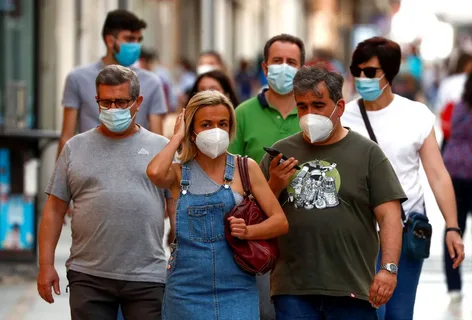A recent study published in PLOS ONE by researchers from the University of East Anglia (UEA) has discovered that the use of face masks did not significantly reduce the risk of contracting COVID-19 during the initial surge of the omicron variant in the U.K.
The researchers analyzed data from the Office for National Statistics (ONS) COVID survey in England, which compared infection rates with an ongoing household survey of the population. From November 2021 to May 2022, the ONS collected data on various factors that could potentially influence the risk of testing positive for COVID-19, including face mask usage, travel history, household size, employment status, and contact with children or older adults.
The study, titled “Changing risk factors for developing SARS-CoV-2 infection from Delta to Omicron,” revealed that several risk factors for infection underwent significant alterations as the dominant COVID-19 variant in the U.K. shifted from delta to omicron in December 2021. Among these factors, the use of face masks showed inconsistent results.
Professor Paul Hunter, of Norwich Medical School at UEA, stated, “Early in the pandemic, numerous studies were conducted to identify risk factors for contracting COVID-19. However, fewer studies were published after the first year or so. Our research demonstrates that there were changes in some risk factors around the time that the omicron BA.2 variant became dominant.”
Dr. Julii Brainard, also of UEA’s Norwich Medical School, added, “Given that laboratory evidence suggests the omicron variant is more adept at infecting the cells lining the upper respiratory tract than previous variants, it’s not entirely surprising that some risk factors might have changed. Adapting to epidemic development and incorporating better-quality information as it emerges is crucial for managing infection risk.”
The researchers employed a statistical method called meta-regression to examine the consistency or change in the importance and direction of potential risk factors for testing positive. Their findings indicated that the use of face masks did not exhibit a consistent relationship with the risk of COVID-19 infection during the omicron wave.
Professor Hunter concluded, “Our study underscores the importance of remaining vigilant and adaptive in our approach to preventing COVID-19 infections. As risk factors can change, it’s essential to stay informed and adjust our strategies accordingly.”
*Note:
1. Source: Coherent Market Insights, Public sources, Desk research
2. We have leveraged AI tools to mine information and compile it



